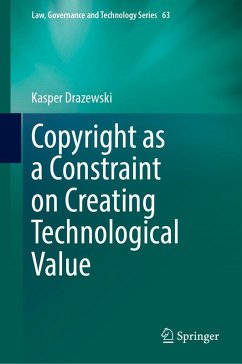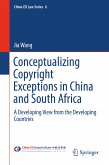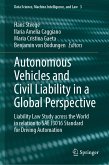Can we regulate something that doesn't exist yet? Can Europe create its own Silicon Valley? Who gets to create technological value in today's world? Whatever happened to the once-flourishing idea of rags to riches? Will new and exciting innovations only ever come from big tech companies? Can the EU establish its own flexible framework for boosting innovation, e.g. by facilitating the transformative use of technologies and data?
This book seeks to answer these questions by exploring the differences in copyright culture in Europe and the United States, with its flexible fair use framework. The findings are anything but obvious, and decades of case law on both sides of the Atlantic tell a story of judges going to great lengths to deal with new challenges while navigating the imperfections of statutory law - both where it is too broadly formulated and where it is too prescriptive.
How can the population's creative potential best be fostered? What do software innovations havein common with the evolution of living organisms? What are the vulnerabilities of distributed creativity? Answers are sought in the processes that came into being during the early years of the digital revolution and were then forced to take a back seat as control of the means of production was increasingly placed in the hands of tech companies.
The findings and insights presented here are highly relevant for today's digital policymaking. Market concentration processes in innovation haven't ceased; they are ongoing. And in an age where data-driven services are creating and reinforcing global oligopolies, the question posed by the U.S. Supreme Court in Google v. Oracle is now more relevant than ever: who should hold the keys to digital innovation?
Dieser Download kann aus rechtlichen Gründen nur mit Rechnungsadresse in A, B, BG, CY, CZ, D, DK, EW, E, FIN, F, GR, HR, H, IRL, I, LT, L, LR, M, NL, PL, P, R, S, SLO, SK ausgeliefert werden.









